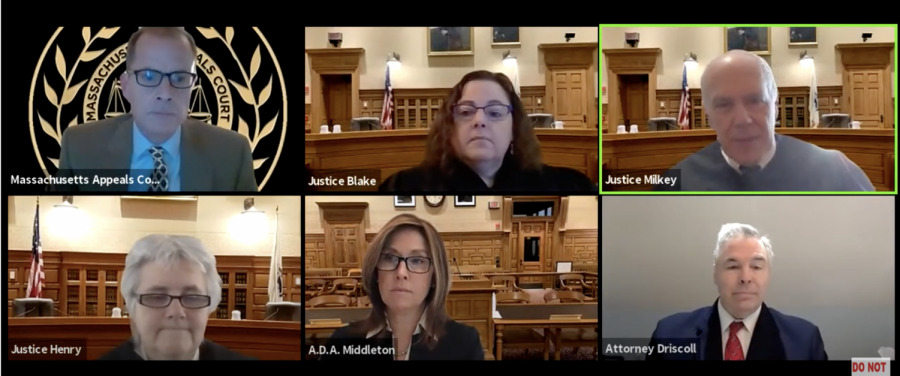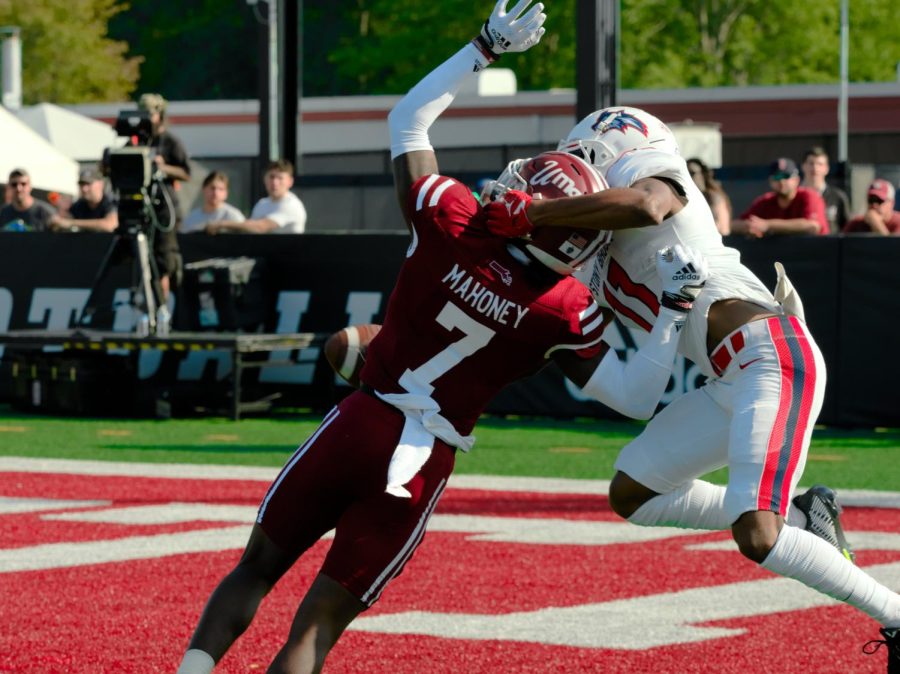Students at the University of Massachusetts had the opportunity to witness six Massachusetts Appeals Court oral arguments online followed by a virtual Q&A from a panel of three sitting justices on Thursday. The presiding justices for the virtual sitting were Associate Justice William Meade, Associate Justice Mary Sullivan and Associate Justice Peter Sacks.
The six cases, which were broadcast live on their YouTube channel, dealt with a variety of subjects ranging from domestic violence, assault and other matters brought to the Commonwealth for appeal of a lower court’s decision.
“It certainly hasn’t affected our efficiency,” said Meade on how COVID-19 has hindered the judicial process. “I’m in my pajama pants right now in my office at home and I can do my job just about anywhere I want except for those two or three days I have to be in court.”
Moving the oral arguments to Zoom rather than face-to-face hasn’t been a major deterrent in their system, according to the justices. Sacks added that the parties are getting the accurate sense that they’re listening to their cases and carefully considering them, which is necessary to keep peoples’ faith in the rule of law alive.
A few students posed questions aimed at the distinction between personal ethics and strict interpretations of the law when it comes to making legal decisions. Meade shared this quote from John Adams to address the matter: “Facts are stubborn things, and whatever may be our wishes, our inclinations, or the dictates of our passions, they cannot alter the state of the facts and evidence.” All three justices agreed on the point that their personal opinions should never cloud the decisions made in court.
For people who are thinking about careers in law, Sacks advised that there are numerous other ways that one can be a lawyer and have a satisfying life than going to court. All three advised getting experience outside of the legal realm and taking a break between school to discover what one’s passions.
Sullivan echoed these statements by emphasizing the distinctions between advice, litigation or joining the branches of government to align personal values with career.
“An argument could be made, particularly in your lifetimes, that the action will be in state and local governments for sustained change and impact,” said Sullivan.
Some students were interested in Sullivan’s experience being a woman in this field. She said that the primary obligation of any jurist is to apply the law regardless of our personal opinions, but in cases like the domestic violence one they heard earlier in the day, diverse perspectives can make a difference.
“If you look at the development of the law, you can see how a perspective that may not have been evident on the bench 40 years ago, when the numbers of women were so much smaller, have made their way into the legislation, into the statutes that we are bound to interpret, and into our interpretations of the cases,” said Sullivan.
In the span of their careers, from appeal lawyers to court justices, all three have dealt with emotionally taxing cases and some that still haunt them to this day. Meade said that if you’re an appellate judge and you like all of the decisions that you’ve made, you aren’t doing your job right, but ultimately, they do their jobs to uphold the judiciary and a society founded on order.
“I am not sure if it’s our job to make the world fairer,” said Sacks. “We help maintain people’s sense that we are a government of laws, and not of people. Systemically, like Justice Meade said, we judge cases and not people.”
Kelly Palacios can be reached at [email protected]. Follow her on Twitter @kellydpalacios.



















